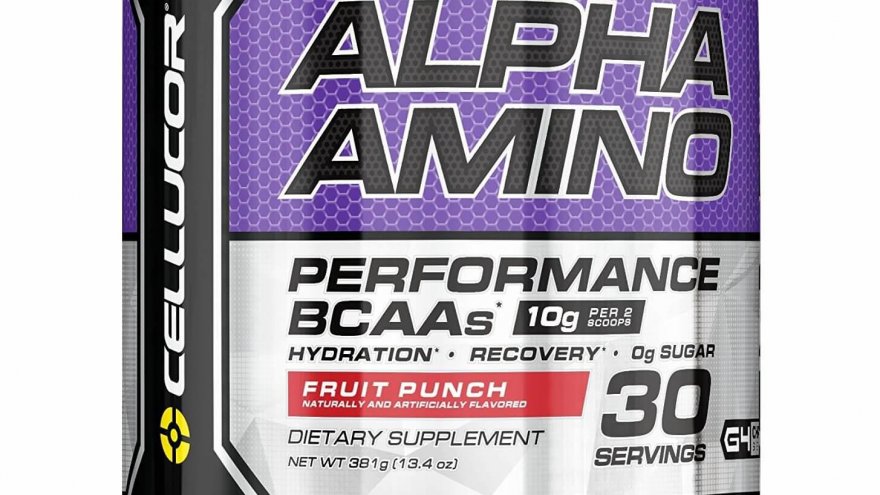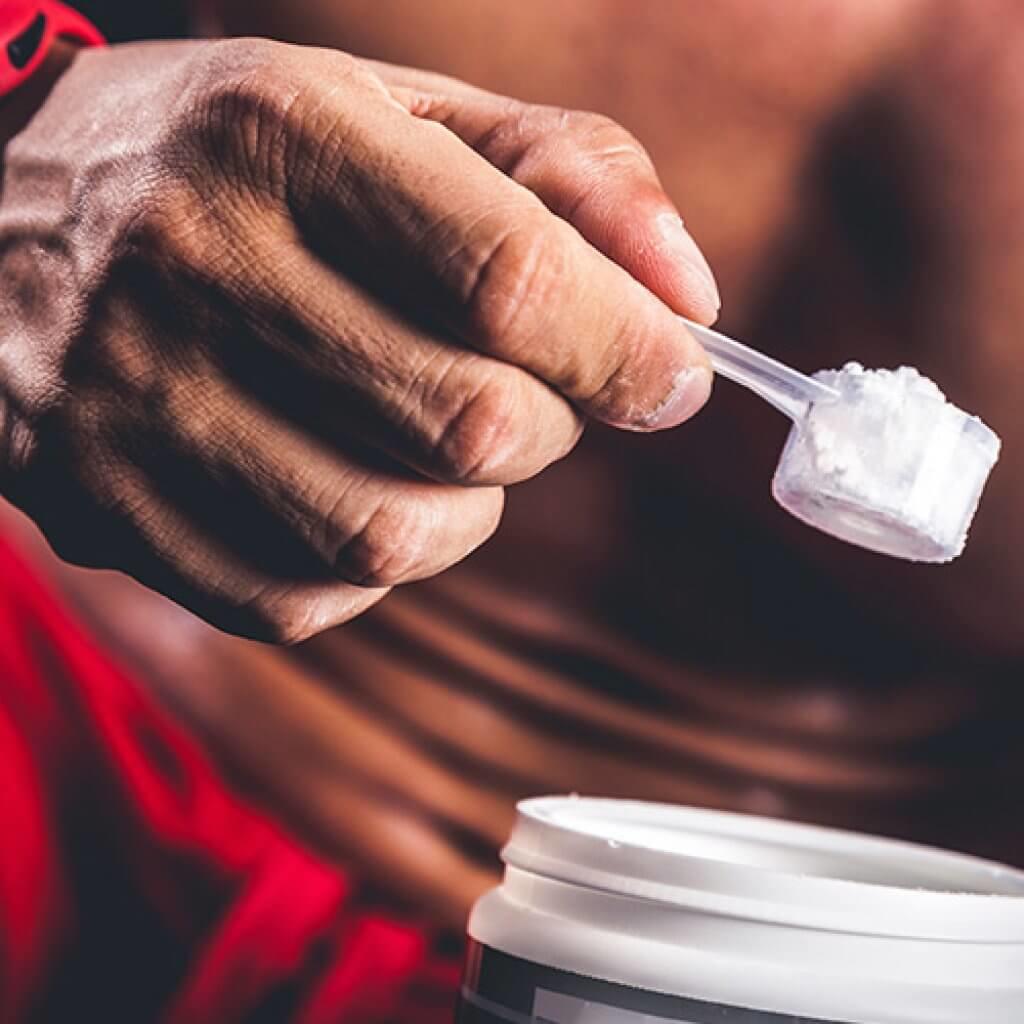Could BCAAs Improve Your Running?

There are tons of different supplements out there, each boasting a wide range of supposed benefits. In that somewhat overwhelming barrage of information, making wise decisions about your training can be a real challenge. In many cases, supplements are marketed primarily toward strength training, giving the impression that they don’t really have any use for runners and other endurance athletes. Which is unfortunate, since many of these supplements actually do offer runners some pretty significant benefits. A prime example of this misconception exists in BCAAs. But what are BCAAs? And how, exactly, can they help runners?
All In The Name
More clinically called Branched-Chain Amino Acids, BCAAs owe everything to their unique shape. As their incredibly descriptive name suggests, these particular substance differ from the other amino acids in that they have a specialized branched-chain formation.

Like all amino acids, though, BCAAs serve a wide variety of functions in your body – contributing to the growth of tissue, metabolism of nutrients and formation of hormones. Because of their shape, though, BCAAs are able to be stored directly in the muscle. And that makes all the difference.
Although they are typically referred to as a collective, there are actually three separate BCAAs that fulfill different – but related – functions. Individually, these amino acids are leucine, isoleucine and valine. More details on their interconnectivity will be covered later on. For now, it’s helpful to see how BCAAs function as a unit.
Keeping Things Clean
Because the BCAAs are already on the scene when you start exercising, they are able to work quickly and offer noticeable benefits. But…what are they doing so efficiently?
As it turns out, a few things. First, BCAAs appear to be effective at reducing levels of ammonia in your system. As you exercise, protein is broken down and ammonia is released as a byproduct. Unfortunately, this build-up of ammonia is not at all a favorable condition for your muscles and will eventually lead to fatigue. So, by actively working against the rising tide of ammonia, BCAAs will your muscles to work for longer periods – effectively increasing your muscular endurance.

At the same time, BCAAs directly increase the concentration of bicarbonate in your muscles. Often supplemented in the form of baking soda, bicarbonate is an extremely effective lactic acid buffering agent. Similar to ammonia, lactic acid build-up can eventually overwhelm and exhaust your muscles. By encourage a rise in bicarbonate, then, BCAAs keep your muscles working efficiently longer.
Enhanced Muscle Health
But BCAAs may also have other benefits to offer runners. Specifically, BCAA supplementation can increase and improve muscle protein synthesis – the process through which muscle fibers are built and repaired. While runners tend not to be all that concerned with muscle growth, keeping your muscles strong and healthy is vital to optimizing your performance. After all, each step you take requires the large muscles in your legs to pick you up and propel you forward. Those same muscles then have to catch your weight, absorbing all of the impact forces. And then your legs do it again and again and again for the length of your run. Strong, efficient muscles are needed to keep this up.
This also means that BCAAs can enhance your recovery rates. Remember, each time you exercise, your muscles are enduring stress and damage. Any improvements in strength and endurance are the measureable results of your body trying to protect those muscles from future damage. In order to make improvement, then, your body needs to have all of the necessary materials for that rebuilding work. BCAAs are a key part of that formula.

Improved Fuel Use
Finally, BCAAs also increase the rate at which your cells absorb and use your primary fuel, glucose. Just like any other machine, your body must make good use of it’s available fuel in order to function properly.
For runners, this is a very big deal. While training can increase the amount of glucose that you’re able to pack away, your stores of this particular fuel are limited. Once they run out, your fuel system will shift to burning fat. And, although fat is a very effective source of energy, it does require more time and effort for your body to use.
Considerations
Clearly, BCAAs can improve your running performance in several ways. Not only do these specialized amino acids have the ability to keep your muscles working efficiently but they always make you more energy-efficient. Taken together, these functions can work together to improve your endurance – which is really important.
But, even with all of the solid research backing the use of BCAAs for runners, there are still some questions that remain thus-far unanswered. As mentioned earlier, there are three different BCAAs that are bundled together in these supplements. The exact ration of these individual aminos can vary from product to product and isn’t always disclosed. In fact, the ideal amount of isoleucine for you depends on your bodyweight with recommendations ranging from 48 to 72mg per kilogram of bodyweight in most people. A standard dose of leucine is 2 to 10g.
As of yet, no standard dose of valine has been established. In fact, researchers haven’t totally figured out what valine does at this point.
Latest Articles
 Is Running on a Treadmill Easier Than Running Outside?Runners have their own preferences, whether it is treadmill running, running outside on the road, or exploring trails. So...
Is Running on a Treadmill Easier Than Running Outside?Runners have their own preferences, whether it is treadmill running, running outside on the road, or exploring trails. So... Is It OK to Use Trail Running Shoes on the Road?While trail running shoes can be used on roads, especially in situations where a runner encounters mixed terrains or pref...
Is It OK to Use Trail Running Shoes on the Road?While trail running shoes can be used on roads, especially in situations where a runner encounters mixed terrains or pref... How to Fix Sore Quads After Running?Rest, ice, gentle stretching, and over-the-counter pain relievers can help soothe sore quads after running. Also, ensure ...
How to Fix Sore Quads After Running?Rest, ice, gentle stretching, and over-the-counter pain relievers can help soothe sore quads after running. Also, ensure ... 10 Fruits With The Most Electrolytes to Replace Sports DrinksThese fruits are high in electrolytes such as potassium, magnesium, and calcium, essential for hydration, muscle function...
10 Fruits With The Most Electrolytes to Replace Sports DrinksThese fruits are high in electrolytes such as potassium, magnesium, and calcium, essential for hydration, muscle function...

